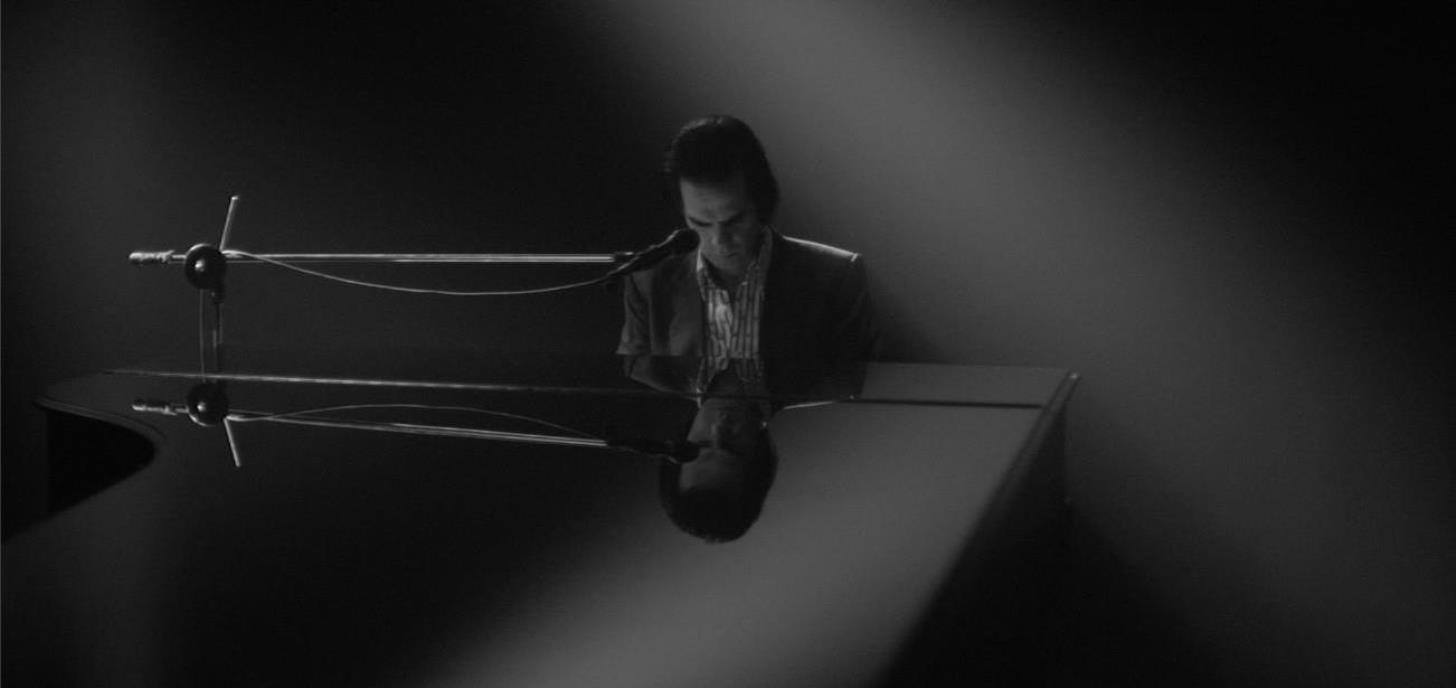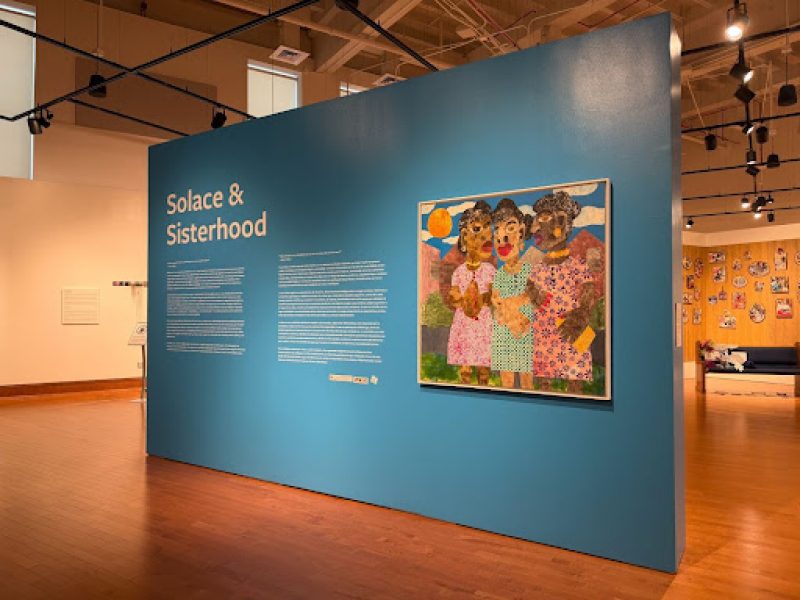“Most people don’t want to change … really. I mean, why should we?” Australian singer-songwriter Nick Cave asks us, speaking in measured tones over a practicing string quartet. “What we do want is sort of modifications on the original model. We keep on being ourselves, but hopefully better versions of ourselves. But what happens when an event occurs that is so catastrophic that you just change?”
It’s a question that appears again and again in One More Time with Feeling, the extraordinary new documentary from director Andrew Dominik. The film, which Cave commissioned after the tragic death of his 15-year-old son Arthur, finds the artist grappling with loss and recovery while recording Nick Cave and the Bad Seeds’ 16th studio album, Skeleton Tree. Dominik and Cave decided to produce the film to address their new record without having to discuss his son’s death with the press. Filmed almost entirely in black and white, the movie is stark and minimalist in its design. Through nearly two hours of interviews, performances and improvised meditations, Feeling sketches a spare and sorrowful reflection on grief and the creative process.
Feeling begins with Cave’s bandmate and friend Warren Ellis riding in the back of a black car being interviewed by a cameraman. When asked about the story of Arthur’s death, he declines to share. “I don’t really know, because I can’t imagine how you navigate such a thing,” he says. “I just can’t even fathom it. And watching this happen to people that you love, it doesn’t even give you any insight into it.” Shortly afterward, the camera shifts to Cave getting dressed and reflecting on his email exchanges with Ellis. Although Cave doesn’t immediately touch on Arthur’s death, the mood is tense and poignant from even its earliest scenes.
The film is structured in an exploratory manner, slowly unfurling as its subjects move furniture about, tune violins or stride across Brighton beaches. Cave narrates throughout, appearing both as interviewee and narrator with improvised lyrics and stream-of-consciousness poetry. The unspoken grief is felt in many of the film’s most banal moments; the looming tragedy makes searching for a lost pen feel suddenly consequential.
The film is visually stunning as well, using lighting effects and camera techniques to great effect. During a rehearsal of “Girl in Amber”, a fish-eye lens floats through the studio, swirling among dreamlike synths and a mournful chorus. The feral drums of “Anthrocene” are combined with rapid flickering strobe lights. Most remarkable is “Distant Sky,” the album’s penultimate song. The camera turns to guest vocalist Else Torp, singing in front of a curtain of light that resembles a glowing halo. Creative but never indulgent, Dominik’s filming adds subtle refinement to the often eerie songs.
But the most profound parts lie in interviews with Nick and his wife, Susie Cave. Nick repeatedly describes time as being like elastic, claiming that something will pull him back toward the trauma no matter what he does. Nick repeatedly discusses how Arthur’s death makes writing songs feel meaningless, upending the notion of tragedy as a necessity for meaningful art.
Susie, a fashion designer, explains how she turned to her work making dresses for solace. “Since everything that happened, my work became something different,” she says quietly, eyes drifting toward the floor. “Before it was something I was doing because I was enjoying it and loving it, but then it became a real necessity. I really had to work, because it was the only thing that would take my mind off everything.” The film shies away from contrived platitudes, choosing to confront its darkness in startlingly candid terms.
Feeling concludes on a bittersweet note, touching on their attempts to move on with genuine honesty. For artists as reserved as the Caves, exposing their most private experiences to the camera is a magnanimous act — one that resulted in a resonant portrait of an artist learning to live with tragedy and turn the senselessness of death into something much more profound.




